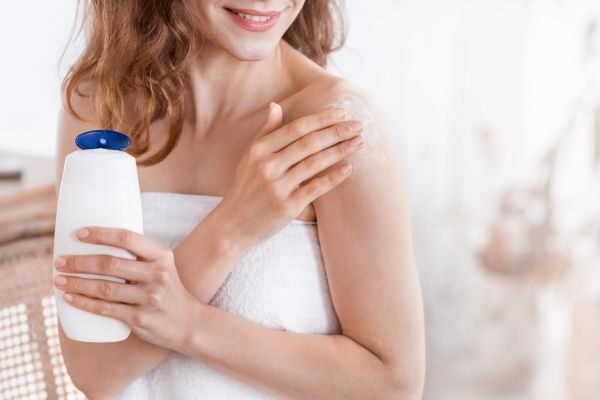
1. Introduction
As the pace of modern life increases and people’s quality of life improves, the demand for body lotions is growing. Body lotions are not only a part of daily skin care, but also an important product for moisturizing the skin, protecting it from the external environment, and relieving dryness. Research shows that consumers are increasingly concerned about skin care, especially when it comes to the use of body lotions, which have been recognized as one of the indispensable elements in maintaining healthy skin.
Body lotion manufacturers play an important role in this sector, not only are they responsible for product development, production and quality control, but they also need to keep up with market trends and changing consumer needs. Globally, the body lotion market is growing at a rapid pace, and body lotion manufacturer needs to innovate in order to provide safe, effective, and high-quality products that meet the individual needs of consumers. In this article, we will discuss in detail the types of body lotions, ingredients, manufacturing processes, market trends, and how to choose the right manufacturer to provide comprehensive guidance to both consumers and industry players.
2. Types of Body Lotion
There are various types of body lotions, mainly for different skin types and applications. The following are some of the most common categories of body lotions:
2.1 General Body Lotion
Normal body lotion is a basic product for daily care and usually contains basic moisturizing ingredients such as glycerin and vegetable oil. It is designed to provide continuous moisturization to the skin to keep it soft and smooth. Many brands will introduce different fragrances and packaging to enhance the consumer experience according to the needs of different markets.
2.2 Bath Body Lotion
Bath body lotions combine the functions of body cleansing and moisturizing. They are usually used after bathing and can effectively lock in moisture and provide up to 24 hours of moisturization to the skin. These products are especially favored by consumers with busy lifestyles because they simplify skincare steps.
2.3 Retinol Body Lotion
Retinol body lotions are designed for anti-aging and are enriched with the powerful ingredient retinol. Studies have shown that retinol promotes skin cell regeneration and improves the appearance of fine lines and wrinkles, giving the skin a more youthful appearance. As a result, these products often advertise their anti-aging benefits to attract consumers concerned about aging skin.
2.4 SPF Body Lotion
SPF body lotions not only moisturize the skin but also provide UV protection to help prevent skin damage caused by sun exposure. These products are especially suitable for summer use or for outdoor activities where you can enjoy both skincare and sun protection at the same time.
2.5 Vitamin C Body Lotion
Vitamin C-enriched body lotions are of interest to consumers because of their antioxidant properties. Vitamin C enhances skin brightness and improves uneven skin tone. These products are often marketed with themes of youthfulness and radiance, appealing to a wide range of consumers seeking a perfect complexion.
2.6 Hyaluronic Acid Body Lotion
Hyaluronic acid is a superior moisturizing ingredient, known as a “hydrating moisturizer”. Hyaluronic acid body lotion can deeply moisturize the skin and lock in moisture, suitable for all skin types, especially dry and dehydrated skin. This type of product is especially important for consumers in dry climates or harsher environments.
3. Main ingredients of body lotions
The effectiveness of a body lotion is largely dependent on the selection and formulation of its ingredients. The following are some common and important types of ingredients:
3.1 Base Ingredients
Base ingredients provide moisturization and nourishment to body lotions. The main ingredients include:
Water (Aqua): the main ingredient in most body lotions, used to dissolve other ingredients and provide base moisture.
Oils: such as vegetable oils (e.g. glycerin, coconut oil, olive oil) or mineral oils, which help to lock in moisture and prevent the skin from drying out.
3.2 Active Ingredients
Active ingredients are the key to body lotions and often have specific skincare benefits. Here are some important active ingredients:
Vitamin E: A powerful antioxidant that neutralizes free radical damage to the skin and protects cellular integrity, resulting in smoother and softer skin.
Vitamin C: An antioxidant, Vitamin C not only brightens the complexion, it also boosts collagen synthesis and improves skin firmness.
Hyaluronic Acid: An effective moisturizer that attracts and locks in moisture for long-lasting hydration.
Retinol (Vitamin A): Widely used as an anti-aging ingredient, it promotes cell metabolism and improves skin texture.
3.3 Other Ingredients
Botanical extracts: such as aloe vera, green tea and oatmeal extracts, which have multiple benefits including soothing, anti-inflammatory and skin nourishing.
Fragrance: Natural or synthetic fragrances that add a pleasant aroma to the product.
Preservatives: To extend the shelf life of the product and reduce bacterial and fungal contamination, hypoallergenic preservative ingredients are usually used.
4. Manufacturing process
The manufacturing process of high-quality body lotions is complex and involves a number of steps, including raw material selection, production and quality control:
4.1 Selection of raw materials
Choosing the right raw materials is the first step in ensuring product quality and safety. Manufacturers usually prioritize natural and organic ingredients from reputable suppliers to ensure the quality and safety of the ingredients. In addition, raw materials need to comply with national or regional regulations and standards to ensure production compliance.
4.2 Production Process
The production process is usually divided into the following steps:
Pre-treatment of raw materials: This includes cleaning and decontamination for subsequent processing.
Mixing: Using efficient mixing equipment, the aqueous and oil phase components are thoroughly mixed to form a homogeneous emulsion.
Emulsification: Through heating and stirring, the water and oil components form a stable emulsifier to ensure the quality of the final product.
Cooling and Filling: The product is filled into containers after cooling to a suitable temperature to prevent bacterial contamination and deterioration of the ingredients.
4.3 Quality Control
Quality control is critical throughout the manufacturing process. Stringent quality checks are required at each stage of the process to ensure that each batch of product meets the required quality standards. Toxicology tests and efficacy assessments are conducted in the laboratory to confirm the safety and efficacy of the products.
4.4 Environmental Considerations
Modern manufacturers are becoming increasingly environmentally conscious and are committed to developing sustainable production processes, using renewable materials and biodegradable packaging. In addition, many manufacturers are also seeking to reduce utility consumption and waste emissions to achieve environmentally friendly production goals.
5. In vitro testing and certification
In order to ensure the safety and efficacy of their products, manufacturers often conduct a variety of in vitro tests as well as obtain relevant certifications, for example:
5.1 Clinical Testing
Clinical testing is an important step in verifying the efficacy and safety of a body lotion and these tests typically include:
Irritation testing: to assess the degree of irritation of the product on the skin and to ensure that it does not trigger an allergic reaction.
Efficacy tests: consumer tests to collect data on skin improvement and verify the effectiveness of the product.
5.2 Certifications
Obtaining relevant certifications not only enhances brand credibility, but also makes it easier for consumers to make purchasing decisions. Common certifications include:
Organic certification: proves that the ingredients used in the product come from organic farms that are free of chemical pesticides and comply with organic standards.
Animal testing-free certification: promises consumers that the product has not been tested on animals and meets ethical standards.
6. Market trends and innovations
The current body lotion market is evolving at a rapid pace and the following trends are significantly changing the market landscape:
6.1 Consumer Preferences
Today, consumers are becoming more cognizant of skincare ingredients, with many favoring products with carefully selected natural ingredients. They are more concerned about the transparency, source, efficacy, and environmental friendliness of the ingredients, and this consumer trend has prompted manufacturers to focus more on ingredient selection and labeling in product development.
6.2 Rise of Natural and Organic Products
The market demand for organic skincare products is growing rapidly, with consumers recognizing that these products are free from harmful ingredients, have low skin irritation, and are suitable for a wide range of skin types. Manufacturers are beginning to prioritize natural ingredients in their R&D and are adopting green production processes to meet market demand.
6.3 Application of new technologies
With the development of science and technology, many new technologies have been widely used in the manufacture of skin care products:
Nanotechnology: Improve skin absorption through nanoscale ingredients, so that the active ingredients better penetrate into the deeper layers of the skin.
Intelligent skincare technology: combining big data and artificial intelligence to provide customized skincare solutions based on individual skin type, environmental factors, etc. to enhance consumer experience.
7. How to choose the right body lotion manufacturer
Choosing the right body lotion manufacturer is key to ensuring product quality and consumer satisfaction, and the following aspects should not be overlooked:
7.1 Qualification and experience
The manufacturer’s industry qualifications and experience are important for selection. A reputable body lotion manufacturer should have relevant quality management system certifications (e.g. ISO). Experienced manufacturers are usually more mature in product development and production processes and are able to provide consistent product quality.
7.2 Product range and customization capability
A good body lotion manufacturer should have a rich product line and be able to provide a wide range of body lotions to meet the needs of different consumer groups. In addition, the manufacturer should also have certain customization capabilities to meet the brand’s individual needs.
7.3 Customer Service and Support
The quality of customer service has a direct impact on the relationship between the brand and the manufacturer. Body lotion manufacturers should have good pre-sales and after-sales support, be able to respond quickly to customer problems and provide timely technical guidance and solutions.
7.4 Case Studies and Customer Reviews
When selecting a manufacturer, it is also important to examine its position in the industry and customer reviews. Checking relevant case studies and customer feedback can help assess the credibility and capability of the body lotion manufacturer.
8 Conclusion
Manufacturing high-quality body lotions is critical to the health of consumers’ skin and also affects a manufacturer’s competitiveness in the marketplace. In order to excel in a rapidly changing market, manufacturers need to innovate and provide products that are safe, effective, and able to meet the individual needs of consumers. By choosing the right manufacturer, brands can ensure the quality and effectiveness of their products, thus better serving consumers and achieving a win-win situation.
9. Appendix
For more information on body lotion products and manufacturers, you can visit the following links:
3TOP Bio – Body Lotion Products
3TOP Bio – Bath & Body Lotion
3TOP Bio – Retinol Body Lotion
3TOP Bio – Body Lotion SPF
3TOP Bio – Vitamin C Body Lotion
3TOP Bio – Hyaluronic Acid Body Lotion
10. Contact information
For more information or consulting services, please feel free to contact us through the following methods:
Email: info@ruiqigo.com
Phone: +1 (800) 555-0199







